 | TODAY IN SCIENCE HISTORY
NEWSLETTER - 24 OCTOBER |
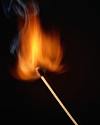 On 24 Oct 1836, Alonzo Dwight Phillips of Springfield, Massachusetts, received the first U.S. patent for the phosphorous friction safety match. The first friction matches, using a mixture of chemicals for their heads, were made and sold in England in 1827. Phillips' match, which could be struck on any rough surface, was the first genuine friction match made in America. Known as “loco focos,” and later as “lucifers,” these matches were made entirely by hand from a mixture of chalk, phosphorus, glue and brimstone (sulphur). The introduction of gas for lighting and cooking, and the spread of cigar smoking, made the lucifer almost a necessity. By the time of the Civil War, about a million matches a day were being manufactured. You can read U.S. Patent 68 for details of how Phillips made his matches. On 24 Oct 1836, Alonzo Dwight Phillips of Springfield, Massachusetts, received the first U.S. patent for the phosphorous friction safety match. The first friction matches, using a mixture of chemicals for their heads, were made and sold in England in 1827. Phillips' match, which could be struck on any rough surface, was the first genuine friction match made in America. Known as “loco focos,” and later as “lucifers,” these matches were made entirely by hand from a mixture of chalk, phosphorus, glue and brimstone (sulphur). The introduction of gas for lighting and cooking, and the spread of cigar smoking, made the lucifer almost a necessity. By the time of the Civil War, about a million matches a day were being manufactured. You can read U.S. Patent 68 for details of how Phillips made his matches. |
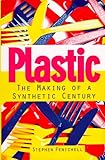 On 24 Oct 1911, Nathaniel Wyeth was born, inventor of the familiar plastic used for beverage bottles and other containers. Today's Science Store pick is: Plastic: The Making of a Synthetic Century, by Stephen Fenichell. With lots more than just Wyeth's discovery described, your webmaster has found this an excellent source to read as a history of the many plastics now found in daily life. Polyethylene airborne-radar insulation (which the British had and the Nazis didn't) helped the Allies win the air war over Europe. Computer discs and audio- and videotape (remember those?) made possible the information age, while plastic hearts and limbs prolong and improve human life. Fenichell unreels a fascinating tale of scientific discovery, tragedies, rare ingenuity and serendipity. It is available New from $13.93. Used from $0.01. (As of time of writing.). On 24 Oct 1911, Nathaniel Wyeth was born, inventor of the familiar plastic used for beverage bottles and other containers. Today's Science Store pick is: Plastic: The Making of a Synthetic Century, by Stephen Fenichell. With lots more than just Wyeth's discovery described, your webmaster has found this an excellent source to read as a history of the many plastics now found in daily life. Polyethylene airborne-radar insulation (which the British had and the Nazis didn't) helped the Allies win the air war over Europe. Computer discs and audio- and videotape (remember those?) made possible the information age, while plastic hearts and limbs prolong and improve human life. Fenichell unreels a fascinating tale of scientific discovery, tragedies, rare ingenuity and serendipity. It is available New from $13.93. Used from $0.01. (As of time of writing.). | | For picks from earlier newsletters, see the Today in Science History Science Store home page. | |
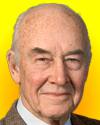 | Beneath all the wealth of detail in a geological map lies an elegant, orderly simplicity. - Tuzo Wilson, Canadian geologist and geophysicist (born 24 Oct 1908).  |
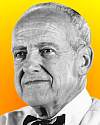 | I'm convinced that the best solutions are often the ones that are counterintuitive - that challenge conventional thinking - and end in breakthroughs. It is always easier to do things the same old way...why change? To fight this, keep your dissatisfaction index high and break with tradition. Don't be too quick to accept the way things are being done. Question whether there's a better way. Very often you will find that once you make this break from the usual way - and incidentally, this is probably the hardest thing to do—and start on a new track your horizon of new thoughts immediately broadens. New ideas flow in like water. Always keep your interests broad - don't let your mind be stunted by a limited view. - Nathaniel Wyeth, American chemist and inventor (born 24 Oct 1911).  |
 | Simplicibus itaque verbis gaudet Mathematica Veritas, cum etiam per se simplex sit Veritatis oratio. (So Mathematical Truth prefers simple words since the language of Truth is itself simple.) - Tycho Brahe, Danish astronomer (died 24 Oct 1601).  |
| Before you look at today's web page, see if you can answer some of these questions about the events that happened on this day. Some of the names are very familiar. Others will likely stump you. Tickle your curiosity with these questions, then check your answers on today's web page. |
 | Nathaniel Wyeth, born 24 Oct 1911 was a US chemist and inventor of the first plastic strong enough to hold highly pressurized carbonated beverages without bursting, and safe enough to pass muster with the FDA.
 What plastic did Wyeth develop?? |
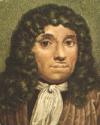 | A Dutch microscopist, born 24 Oct 1632, was the first to observe bacteria and protozoa. His researches on lower animals refuted the doctrine of spontaneous generation, and his observations helped lay the foundations for the sciences of bacteriology and protozoology.
 Can you name this scientist? |
 | Tycho Brahe was an astronomer (1546-1601) who developed astronomical instruments to measure and fix the positions of stars paved the way for future discoveries. His accurate observations�the best before the invention of the telescope�included a comprehensive study of the solar system.
 What was his nationality? |
| On 24 Oct 1939, at DuPont's Wilmington, Delaware nylon factory the a new product was sold to employees, the first of such items sold in the U.S. The fibre was strong, elastic, and did not absorb moisture. Nationwide sales began on 15 May 1940.
 What product was this item designed to replace? |
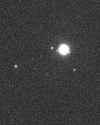 | On 24 Oct 1851, William Lassell discovered Ariel and Umbriel, satellites of Uranus. Each were named after characters in literature.
 The moons of Uranus were named after characters in works by which one author? |
When you have your answers ready to all the questions above, you'll find all the information to check them, and more, on the October 24 web page of Today in Science History. Or, try this link first for just the brief answers.
Fast answers for the previous newsletter for October 23: the decade containing the year 1916 • tornadoes, on the basis of their damage • John Boyd Dunlop • John Dalton • 3.4 billion years. |
 If you enjoy this newsletter, the website, or wish to offer encouragement or ideas, please send feedback by using your mail reader Reply button. If you enjoy this newsletter, the website, or wish to offer encouragement or ideas, please send feedback by using your mail reader Reply button.
Your click on a StumbleUpon, Google+ or Facebook social button on the site webpages is also a welcome sign of appreciation. Thank you for using them. |
To find citations for quotations go to the corresponding webpage by clicking on the “quotes” balloon icon. Sources for the thumbnails appear on today's webpage with the corresponding item.
� This newsletter is copyright 2013 by todayinsci.com. Please respect the Webmaster's wishes and do not put copies online of the Newsletter � or any Today in Science History webpage. (If you already have done so, please remove them. Thank you.) Offline use in education is encouraged such as a printout on a bulletin board, or projected for classroom viewing. Online, descriptive links to our pages are welcomed, as these will provide a reader with the most recent revisions, additions and/or corrections of a webpage. For any other copyright questions, please contact the Webmaster by using your mail reader Reply button. |
--
If you do not want to receive any more newsletters,
Unsubscribe To update your preferences and to unsubscribe visit
this link 


 On 24 Oct 1836, Alonzo Dwight Phillips of Springfield, Massachusetts, received the first U.S. patent for the phosphorous friction safety match. The first friction matches, using a mixture of chemicals for their heads, were made and sold in England in 1827. Phillips' match, which could be struck on any rough surface, was the first genuine friction match made in America. Known as “loco focos,” and later as “lucifers,” these matches were made entirely by hand from a mixture of chalk, phosphorus, glue and brimstone (sulphur). The introduction of gas for lighting and cooking, and the spread of cigar smoking, made the lucifer almost a necessity. By the time of the Civil War, about a million matches a day were being manufactured. You can read U.S. Patent 68 for details of how Phillips made his matches.
On 24 Oct 1836, Alonzo Dwight Phillips of Springfield, Massachusetts, received the first U.S. patent for the phosphorous friction safety match. The first friction matches, using a mixture of chemicals for their heads, were made and sold in England in 1827. Phillips' match, which could be struck on any rough surface, was the first genuine friction match made in America. Known as “loco focos,” and later as “lucifers,” these matches were made entirely by hand from a mixture of chalk, phosphorus, glue and brimstone (sulphur). The introduction of gas for lighting and cooking, and the spread of cigar smoking, made the lucifer almost a necessity. By the time of the Civil War, about a million matches a day were being manufactured. You can read U.S. Patent 68 for details of how Phillips made his matches. 



 What plastic did Wyeth develop??
What plastic did Wyeth develop?? 
 Can you name this scientist?
Can you name this scientist? 
 What was his nationality?
What was his nationality?  What product was this item designed to replace?
What product was this item designed to replace? 
 The moons of Uranus were named after characters in works by which one author?
The moons of Uranus were named after characters in works by which one author?  If you enjoy this newsletter, the website, or wish to offer encouragement or ideas, please send feedback by using your mail reader Reply button.
If you enjoy this newsletter, the website, or wish to offer encouragement or ideas, please send feedback by using your mail reader Reply button. 

Δεν υπάρχουν σχόλια:
Δημοσίευση σχολίου